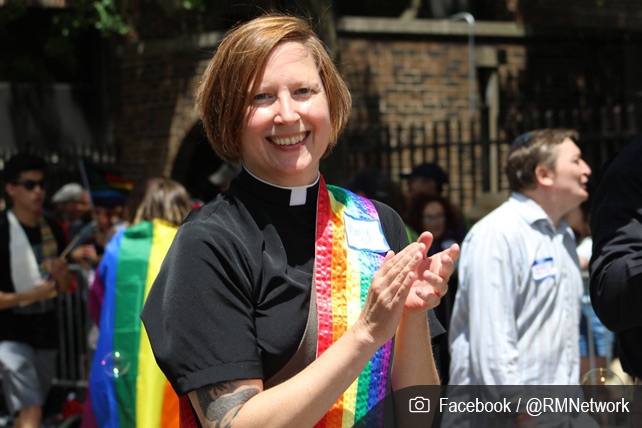Blog Post
Liberal Christianity is driven by culture, not by Scripture
By Jonathon Van Maren
Earlier this month, conservative evangelical Denny Burk, pastor and professor at the Southern Baptist Theological Seminary, faced off on Twitter with progressive Kristin Kobes du Mez, whose book Jesus and John Wayne: How White Evangelicals Corrupted a Faith and Fractured a Nation has been the toast of the mainstream press for the past year. There is obviously much the two disagree on, and their back-and-forth on LGBT issues was an interesting exchange, with both penning blog posts to articulate their disagreements more clearly.
What struck me about this debate, however, is not that Denny Burk, a conservative Baptist and staunch pro-lifer, and Kristin Kobes du Mez, a progressive scholar who displayed thinly veiled contempt for pro-lifers through her recent book, have much to disagree on. It was du Mez’s implication that it was Burk’s theological views which were primarily shaped by culture rather than her own.
Now, to be fair, du Mez did not state that she has definitively concluded that she supports LGBT rights as such — although Jesus and John Wayne made it crystal clear where her sympathies lie. But she did state that she was re-evaluating her stance on sexuality, as is her denomination. Many churches, she pointed out, have been doing so over the past several decades. And she’s right — many major mainline Protestant denominations have abandoned the traditional biblical view of sexuality just before imploding.
But when liberal Christians claim that evangelicalism is primarily shaped by American culture, this seems an almost brazen projection. It is certainly true that churches are impacted by culture and vice versa, and it is also true that there is a peculiarly American version of masculinity that has been absorbed into certain strains of evangelicalism (I noted this in my review of her book earlier this year). But it is absurd for du Mez to imply that the denominations parting ways with 2,000 years of Christian consensus on homosexuality are somehow more thoughtful, compassionate, or theologically faithful than those who cling to the company of everyone from Augustine to the Reformers.
READ THE REST OF THIS COLUMN HERE









Hi, just a thought – this seems like a vastly oversimplified description of what’s going on.
Du Mez may be progressive, and her views may be unbiblical; and Denny may be conservative, and his views may be unbiblical; but none of that changes the fact that it is undoubtedly accurate to say much of American evangelism has been shaped by culture. (duh! everything is!) pointing that out in one area does not mean that the author is claiming herself to be free of cultural influence.
also: saying because someone’s beliefs are unique (though if you did more research you might find it’s not as unique as you might think) to general christian history of the last 2000 years, they are automatically wrong is absurd. is it not possible for errors in church doctrine and misunderstandings of text, language & resulting doctrine or ideas, to exist for hundreds or thousands of years?
Brushing it off as “christian’s have believed this for thousands of years thus you’re straying from “clear” truth so you’re just a progressive liberal getting paid to misrepresent poor underdogs like dear old denny” is unfair to say the least.
btw-i don’t ally myself with either du mez or denny.
This piece, unfortunately, offers broad character indictments and sweeping generalizations that I worry are indicative of a lack of research and/or engaging in good faith with Christians you disagree with.
I don’t disagree with most of what you’re saying here. I was addressing a very narrow point in this article (thus its brevity)–the idea the American evangelicalism is shaped primarily by culture. I took a much longer look at Jesus and John Wayne in a review earlier this year, and I highlighted our points of agreement and specifically the caricature of Christian masculinity that exists in many evangelical subcultures: https://thebridgehead.ca/2021/04/26/jesus-and-john-wayne-a-review/